Agronomist, farmer and consultant Ben Taylor-Davies is well known in regenerative farming circles for not only challenging the status quo, but actively demonstrating a different future. In the words of one farmer: “Ben doesn’t just think outside the box; he redesigns it.”
Along with his wife Helen, Taylor-Davies has transformed their family farm in Herefordshire using regenerative principles. Beyond the farm’s boundaries, he has also worked with dozens of other farmers directly, helping them to shift their own farming trajectory, becoming known on social media as ‘Regen Ben’ and co-hosting the Farming for Change podcast with fellow farmer James Smith.
His definition of regenerative farming emphasises living systems. “If I pack enough biology into my soil, it becomes a living organism,” he says. “Aristotle said that nature abhors a vacuum. If you create one, something will fill it. That’s why we end up with pests, diseases and weeds. So, I do the opposite. I pack with life.”
Taylor-Davies has reduced nitrogen fertiliser on his farm by up to 80 per cent, depending on the crop and season. For other artificial inputs (like pesticides), usage has reduced by 90 per cent. He has also actively experimented with a number of regenerative practices, including a strip till drill to reduce ploughing, a 12ha agroforestry plot and a trial of Kernza perennial wheat.
A circular economy
Nowadays, Townsend Farm, near Ross-on-Wye, is home to a variety of farming activities. The majority of the land (224 hectares) is rotated with potatoes, oil seed rape, barley, wheat, rye and herbal leys, with the majority of the grain sold on the general market.
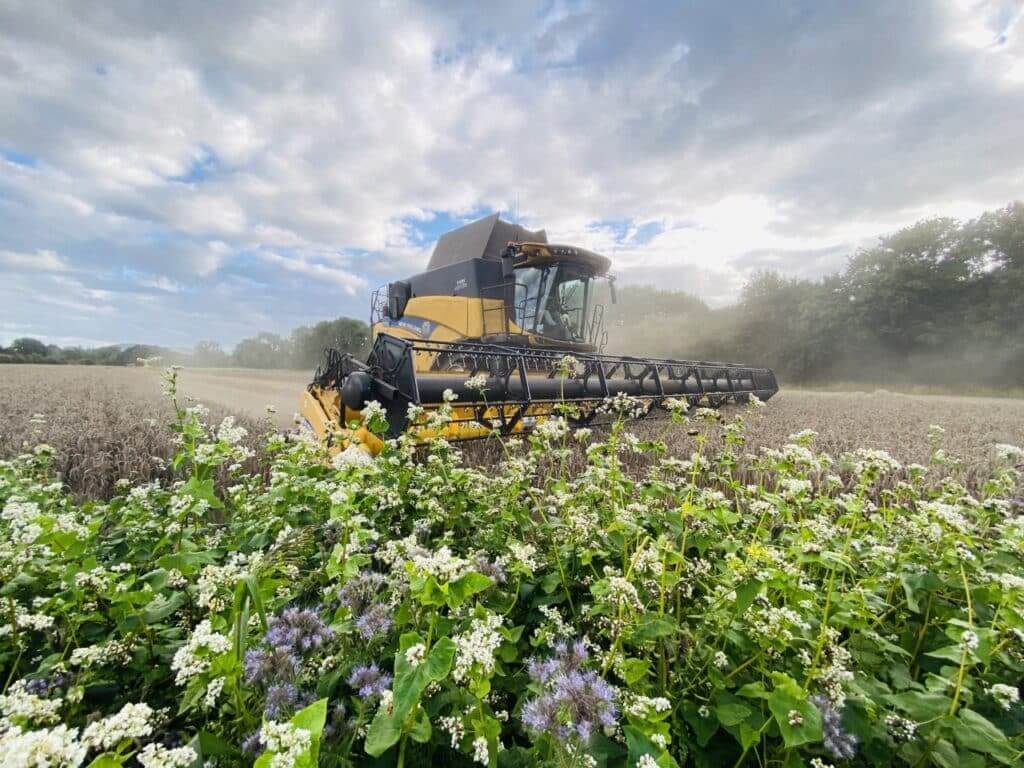
But with a focus on diversity, he’s also removed reliance on any single enterprise. As such, he also farms sheep, cattle, chickens, bees, goats, pigs, alpacas and even rheas (similar to ostriches). For additional income the couple run a shoot, make wine from their vineyard, brew their own beer through a microbrewery and encourage people onto the farm through farm walks, a wedding venue and glamping site.
And each enterprise links to another. Take the Wagyu cattle and brewery: “We grow malting barley,” he explains. “The barley goes through our brewery. Used barley is a waste product, and we feed this to our cattle which then have wonderful marbling scores.’’
A relaxed approach is also central to how this process works. He describes a hands-off approach to managing the vineyard, allowing sheep to graze the lower buds of the vines – good for nutrition and stimulating the vines into producing more grapes.
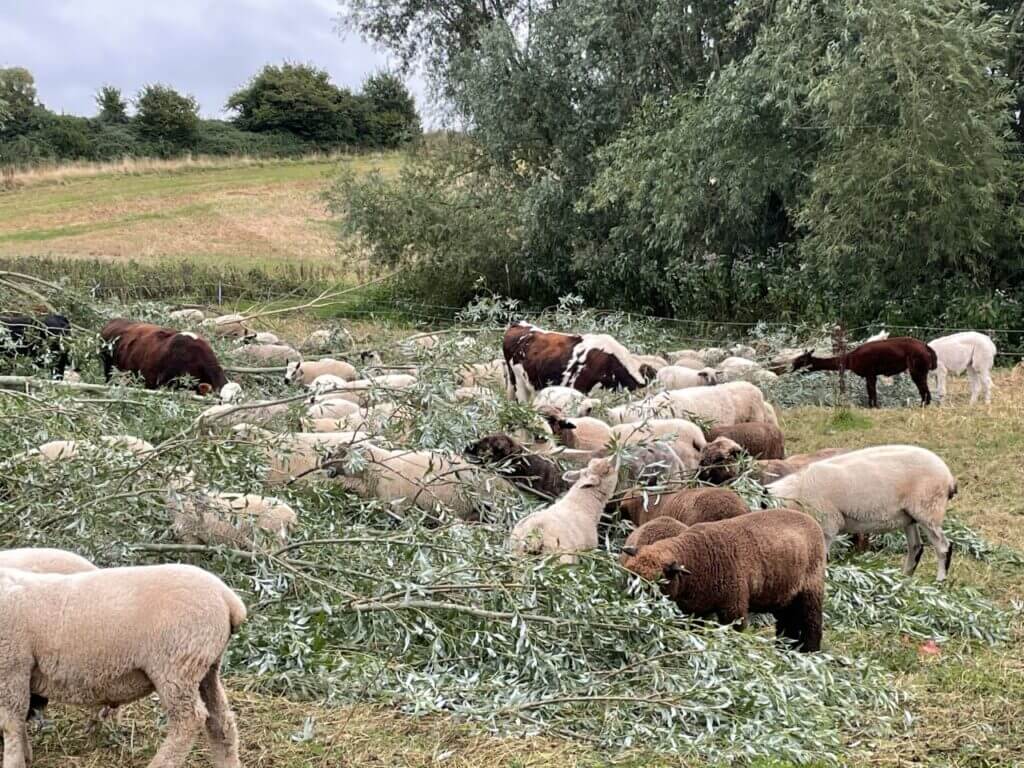
“We are more relaxed as people. That’s the difference,” says Taylor-Davies, who started farming around the year 2000. “We have so many enterprises: all of our eggs aren’t in one basket. The price of wheat is not as critical to us compared to a non-diverse business because we have the vineyard and the sheep, we have a kefir business, agrotourism and so much more. Something will always be profitable.”
The River Wye
A 2.5km stretch of the River Wye runs alongside Townsend Farm. The Wye has become well known for its pollutant pressure, especially from phosphate.
Many farmers apply phosphorous to their land as an essential element for plant growth. Without it, yields would be lower and too little phosphorous can restrict growth of roots and shoots. However, too much of it can cause serious environmental problems.
Taylor-Davies recalls his memories of the river as a child: “I was a keen fisherman and would catch chub and barbel. There was plenty of salmon caught 40 years ago. We took the River Wye for granted. It was a beautiful thing. Now you notice the river going green during the summer and dead fish floating. It’s not in a healthy place.’’
He explains that to see the full context of this issue, we have to understand the soil chemistry. “The Wye Valley has a sandy soil with huge amounts of magnesium. That’s one of the first problems. Most soil contains lots of calcium. Our soil contains lots of magnesium and is low in calcium. Calcium opens the soil. Magnesium pushes it together and potassium and sodium flatten it. We have a sand that squeezes together so tightly that it becomes like concrete. Phosphorous usually binds to calcium to form calcium phosphate. We don’t have the calcium to which the phosphate would bind and so it runs off or leaches.’’
As a result, increasing the activity of soil biology could, he argues, help significantly. On his own farm Taylor-Davies does regular soil and water testing to assess the farm’s impact on the river and says his farming methods entirely restrict soil movement into the river, and phosphate is also prevented from entering the river through the groundwater.
“Historically, one thing that trumps chemistry is organic matter. It keeps soil open, and holds more nutrients. If you have a more biologically active soil, it will cycle phosphate very quickly and allow the plant as much phosphate as it needs.”
What does the future hold?
Over time, Taylor-Davies plans to reduce the acreage that he farms, before offering the remainder to their children or a new entrant. But until then, there are plenty of projects in the pipeline. The latest involves recommissioning an old water pump, plus a windmill and solar to power the farm with renewable energy.
“At night I will split the water into hydrogen and oxygen; the central heating for my house is then on hydrogen. Our quad bike and tractor would also run on hydrogen, so my farm becomes a proper long term sustainable unit. That is exciting. That is the future for Townsend.’’

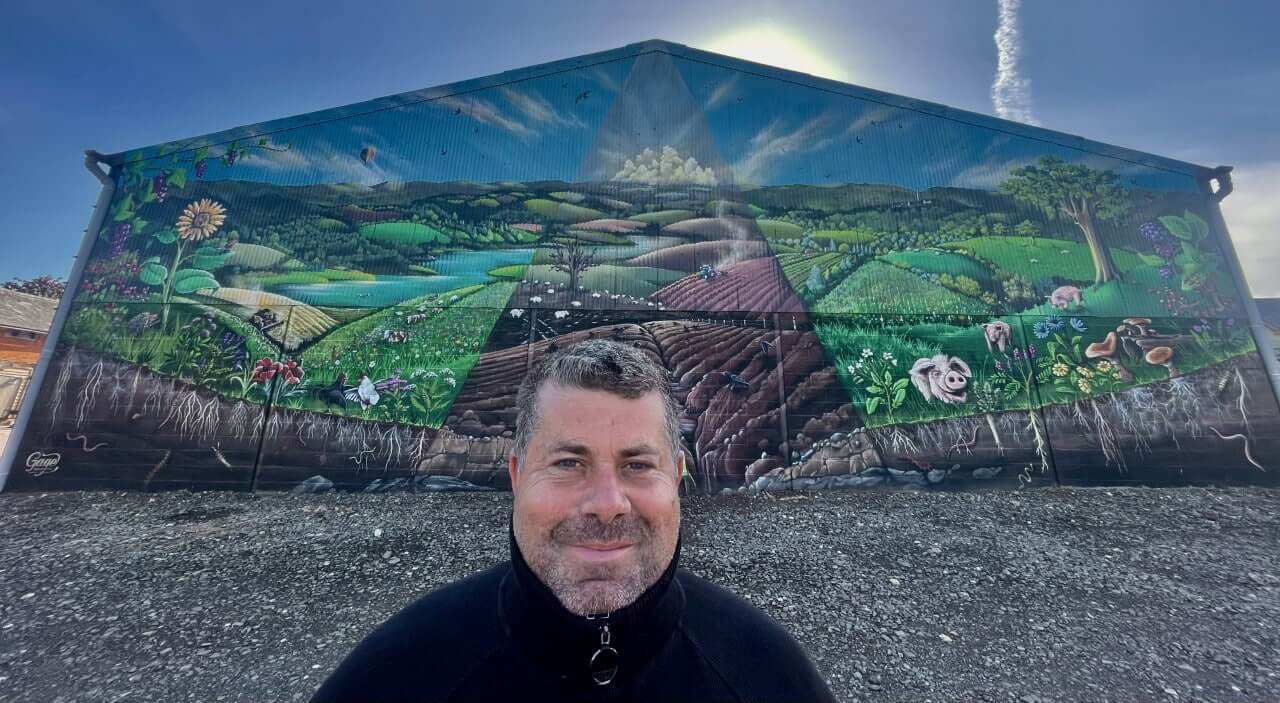
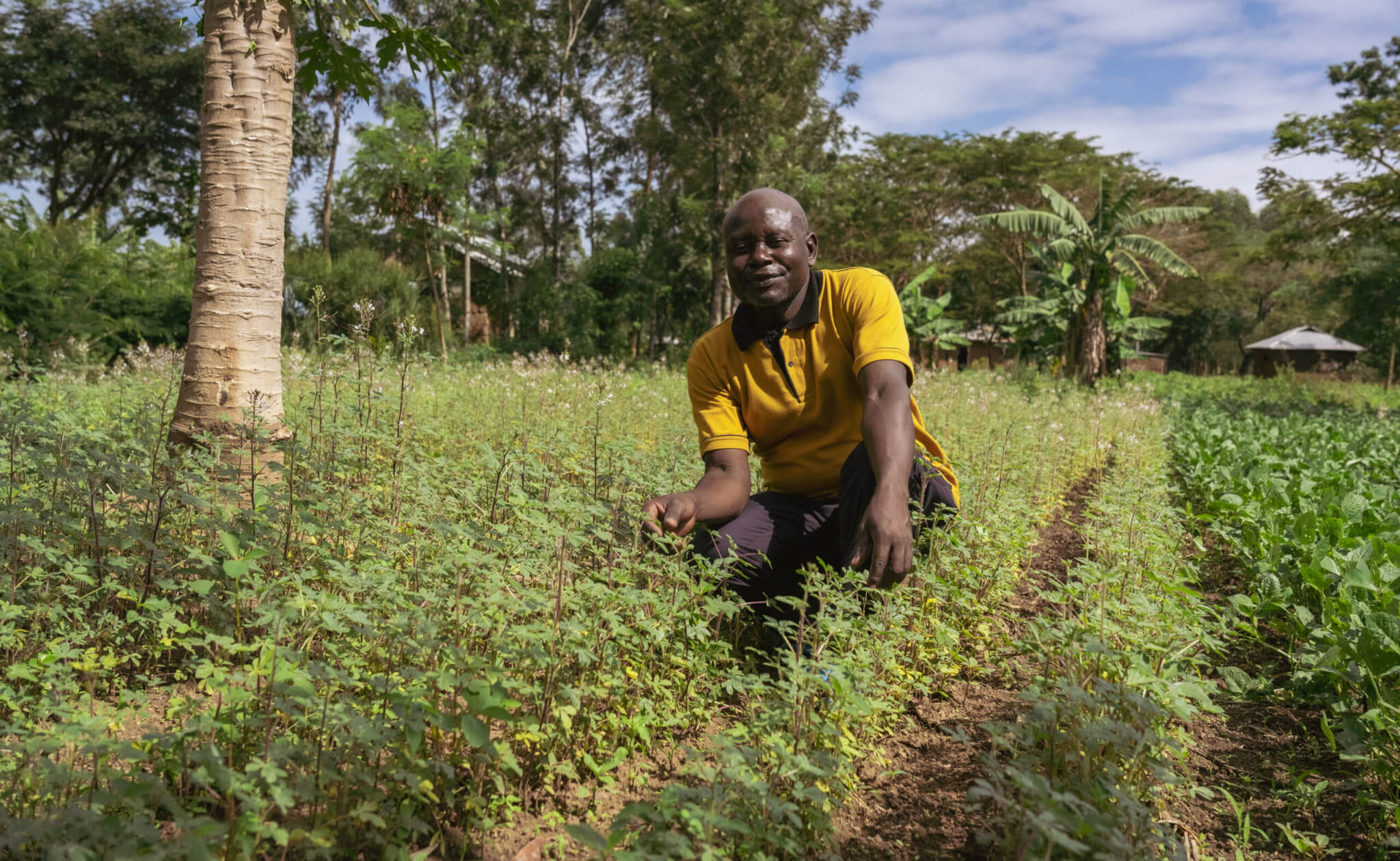
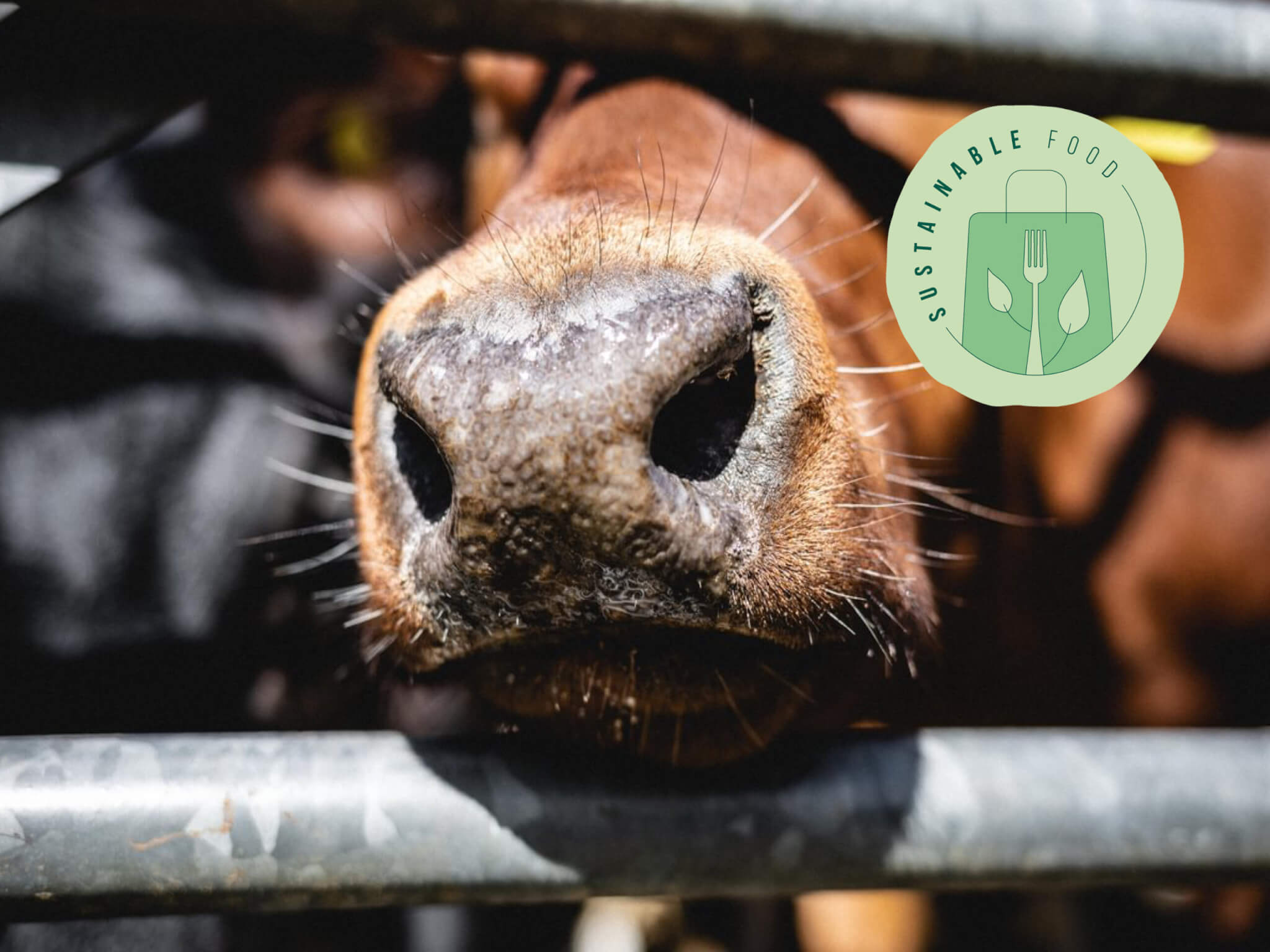
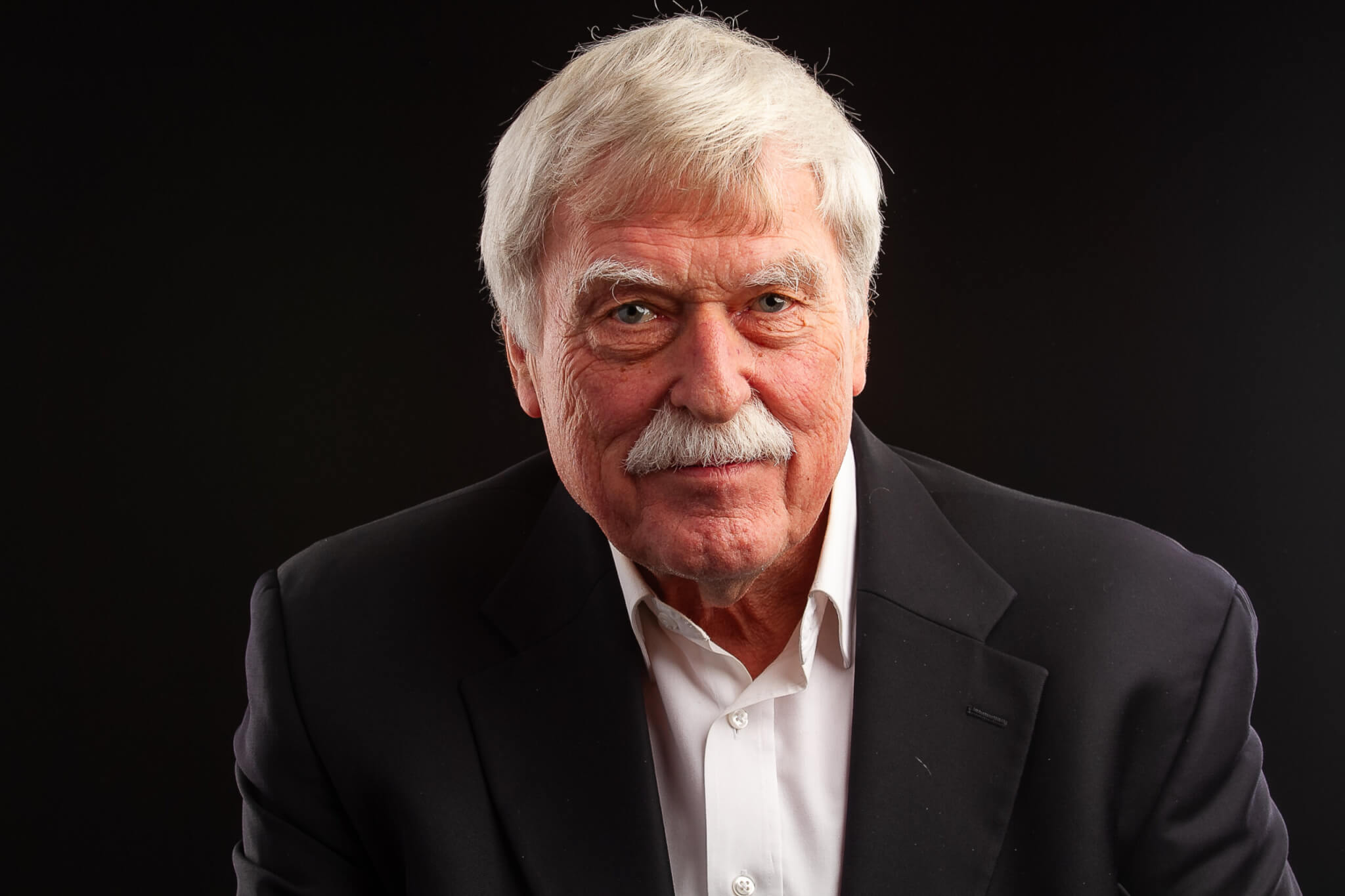





0 Comments